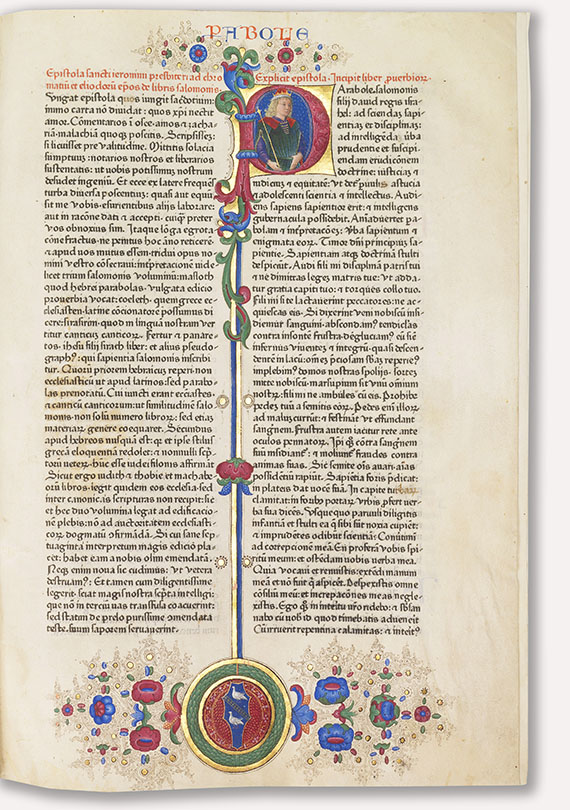Dictionary


Expressive Realism
The term "Expressive Realism" refers to a generation of German painters which had long been buried in oblivion and did not regain its place in art history before the 1980s, which is why they are also often referred to as the "lost generation".
The artists of Expressive Realism were born between the late 19th century and 1905 and had completed their education by the late 1920s. National Socialist art policies inhibited their careers just when their success was about to start. The artists of the "lost generation", just as the slightly older expressionists, were often defamed as "degenerate". As they were not known by a broad public, they were not regarded with a great deal of attention after the war either. On the one hand, the expressionists were rediscovered after World War II, on the other hand, the new trends in art with a tendency to abstraction were popular as well. In this context the painting of "Expressive Realism" somehow disappeared in art history.
Expressive Realism ties in with the innovations of expressive art in terms of coloring and formal elements and even works up the legacy of Impressionism and Paul Cézanne. Expressive Realism's most important compositional devices was color not only as a carrier of expression, but also as a means of creating space and form. Based on this, the artists of the "lost generation" came up with an answer to their days' most urgent issues, which was just as profound as the concepts of art of New Objectivity, Surrealism or Abstraction. However, this is not an attempt to characterize a style, but an artistic starting position. Expressive Realism comprised plastic representations of the world, as well as compositions with a clear nonrepresentational tendency.
Important expressive realists were, among others, Jakob Bräckle, Charles Crodel, Reinhold Ewald, Hans Fähnle, Franz Frank, Wilhelm Geyer, Otto Griebel, Hans Grundig, Pol Cassel, Rudi Gruner, Marianne Herberg, Erwin Henning, Manfred Henninger, Leo Kahn, Wilhelm Kohlhoff, Otto Niemeyer-Holstein, Felix Nussbaum, Manfred Pahl, Otto Pankok, Carl Pflüger, Carl Rabus, Wilhelm Schnarrenberger, Friedrich Karl Ströher, Alfred Wais, Curt Weinhold, Walther Weis, Wolfgang von Websky, Louis Ziercke, Robert Liebknecht and Herbert Vogt.
The term "Expressive Realism" refers to a generation of German painters which had long been buried in oblivion and did not regain its place in art history before the 1980s, which is why they are also often referred to as the "lost generation".
The artists of Expressive Realism were born between the late 19th century and 1905 and had completed their education by the late 1920s. National Socialist art policies inhibited their careers just when their success was about to start. The artists of the "lost generation", just as the slightly older expressionists, were often defamed as "degenerate". As they were not known by a broad public, they were not regarded with a great deal of attention after the war either. On the one hand, the expressionists were rediscovered after World War II, on the other hand, the new trends in art with a tendency to abstraction were popular as well. In this context the painting of "Expressive Realism" somehow disappeared in art history.
Expressive Realism ties in with the innovations of expressive art in terms of coloring and formal elements and even works up the legacy of Impressionism and Paul Cézanne. Expressive Realism's most important compositional devices was color not only as a carrier of expression, but also as a means of creating space and form. Based on this, the artists of the "lost generation" came up with an answer to their days' most urgent issues, which was just as profound as the concepts of art of New Objectivity, Surrealism or Abstraction. However, this is not an attempt to characterize a style, but an artistic starting position. Expressive Realism comprised plastic representations of the world, as well as compositions with a clear nonrepresentational tendency.
Important expressive realists were, among others, Jakob Bräckle, Charles Crodel, Reinhold Ewald, Hans Fähnle, Franz Frank, Wilhelm Geyer, Otto Griebel, Hans Grundig, Pol Cassel, Rudi Gruner, Marianne Herberg, Erwin Henning, Manfred Henninger, Leo Kahn, Wilhelm Kohlhoff, Otto Niemeyer-Holstein, Felix Nussbaum, Manfred Pahl, Otto Pankok, Carl Pflüger, Carl Rabus, Wilhelm Schnarrenberger, Friedrich Karl Ströher, Alfred Wais, Curt Weinhold, Walther Weis, Wolfgang von Websky, Louis Ziercke, Robert Liebknecht and Herbert Vogt.
Offers


